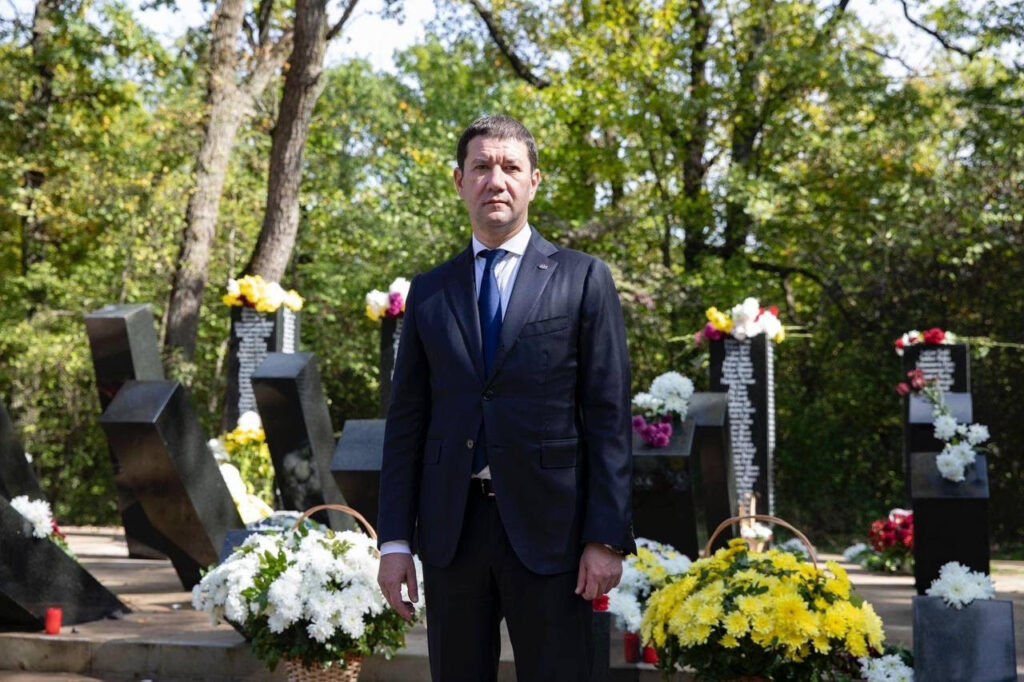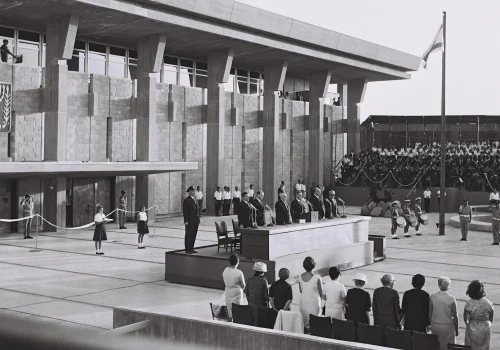
On September 29, the opening ceremony of the monument, deidacated to the memory of thousands of Jews killed during the Holocaust, took place in the Kosaut forest near the town of Soroca in Moldova. The memorial was erected on the site were 6,300 Jews were executed back in 1941. The installation of the monument was initiated by a native of Soroca, President of the Moscow Jewish Religious Community (MERO), Grigory Roitberg, whose relatives are buried in this place. The Jewish community of Moldova and its head, vice-president of the Euro-Asian Jewish Congress Alexander Bilinkis took an active part in the project.
The ceremony was attended by members of the Jewish community of Moldova, descendants of those killed during World War II, President of the Russian Jewish Congress (RJC) Yuri Kanner, officials from Israel and Moldova, diplomats from several countries.
Speaking at the ceremony, Grigory Roitberg noted that the symbolic meaning of the memorial correlates with the well-known expression from Jewish scriptures: “Any untimely deceased person is a Torah page torn out.”
“We often treat the death toll as a statistic – 6 million people is a huge number, yet still a number. But when it comes to the death of one person, who is close to us – it is no longer a statistic, it is a tragedy. Here is a place where 6,300 of such tragedies lie. Most of them were children,” Roitberg added, “Today I really want us not to forget about it. We really need this if only for those who lie here.”
During the ceremony, EAJC Vice-President Alexandru Bilinkis pointed out that for the Jewish community of Moldova it is the fourth opened Holocaust memorial over the past two years.
“For 30 years now, preservation of the Holocaust victims memory, as well as cultural heritage and the fight against anti-Semitism have remained our main mission. Unfortunately, the tragedy of war remains a part of modernity. We do not learn to compromise, we do not learn from our own history,” he said.
The memorial to the Jews shot near the city of Soroka is a composition of twenty marble steles, symbolizing chopped tree trunks. On the first row are the names of thousands of executed Jews, whose identity has been identified to date.
As researchers of the history of the Holocaust note, many events that took place during the 2nd World War on the territory of Moldova have not yet been studied by historians, since they were hushed up for many years. From the first days of the war, the territory of the country was occupied by Romania and included in the so-called Transnistria – the territory between the rivers Dniester and Bug, in the southern part of Ukraine. Before the war, over 300,000 Jews lived there. Transnistria was established in August 1941 and lasted until the second half of March 1944. It is noted that, unlike the Germans, the Romanian genocide of the Jewish population was unsystematic and chaotic.
All decisions to exterminate the Jewish population were left to the discretion of the local leaders, who were not accountable. In the winter of 1941-1942 alone, about 250,000 Jews were killed on the territory of Transnistria. In total, more than 300 thousand Jews died in concentration camps during the years of the Romanian occupation.


